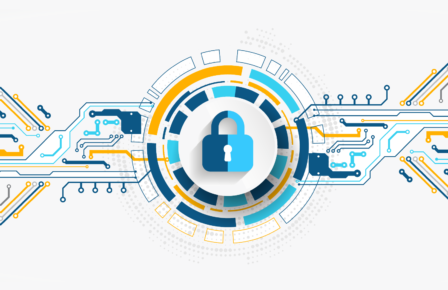Website Safety: Protecting Children Online
The Internet is a wondrous world where the possibility to get a hold of new information is practically endless. As such, it is an ideal educational tool, but because of human predation, a lot of what is on the Internet is also dangerous and poisonous to children. For that reason, it is important that parents not only protect their kids (especially younger ones) online, but also educate them about the risks of surfing the Internet. Some hazards that kids can face when going on the Internet include sex predators, malicious software, cyberbullies, information theft and lewd content like porn websites. While laws have also been passed to shield kids from the slings and arrows of the Internet, the first line of defense should start at home with competent parenting.
Cyberbullying
Cyberbullying is defined simply as the misuse of both technology and information to promote intentional, repetitive, malignant conduct by a person or a group, with the intent being the hurting of other people. When a child is being cyberbullied, it is likely that the child will not volunteer this information because of shame, so it is important that parents know some of the signs of cyberbullying. Some signs include fears of going online, hiding or clearing of the computer screen when parents enter, and even more extreme signs like a loss of appetite or sleeping difficulties. As with many things in life, early detection is the key to stopping a problem, and some tips for parents on how to approach their kids about cyberbullying include reassuring a child to continue helping them and even making appointments on the child’s behalf with specialists like counselors.
Data Theft
Data theft is another problem for kids using the Internet. It is characterized by the stealing of personal information such as addresses, passwords, Social Security information, credit card numbers and other personal information. Children, in contrast with adults who may know more about the need to protect personal information online, are particularly vulnerable to data theft because of their inferior knowledge when it comes to identifying what forms of malicious, data-theft programs are. Children also are more trusting than adults due to the naivety of childhood. Parents can do their fair share to teach children about data theft by telling them about antivirus software and how to strengthen the complexity of online passwords.
Malicious Software
Malicious software consists of things like phishing frauds, viruses, adware, malware and spyware. A child’s computer can be at risk from the various kinds of malicious software by breaches of security and by unauthorized access of said computer’s files. Children are known to be at increased risk because of their tendency to engage in downloading and link-sharing. Parents should therefore teach their children about being exceptionally careful when opening e-mail and never opening e-mail from a sender they do not recognize. Parents should also tell their children never to click on a link they do not recognize.
Inappropriate Content
Inappropriate content is basically content like porn, hate-propaganda sites (like Black Panthers, Louis Farrakhan, etc.) and violent sites. Still, the definition of sites that promote inappropriate content can be seen as varying based on the age of a child and even the respective opinion of the child’s parents. Unfortunately, children may be innocently surfing along, just minding their own business when they may just happen to stumble onto inappropriate sites. If parents are serious about shielding their children’s young and innocent eyes from content they deem inappropriate, they can always install filtering and blocking software that simply does not allow a browser to visit choice sites. Simultaneously, parents may also want to tell their children not to visit sites that show porn or feature hate speech, and demand for children to simply obey.
Predators
Predators can be sexual predators or other kinds of predators, and they are mainly lurking in chat rooms or online social networks. Online predators are a severe risk to children because of the very real danger that initial contact with them may well lead to physical harm and even death; for this reason, online predators are possibly the most baneful of all the threats to children on the Internet. A technique that predators use to get close to children is to simply befriend them on places like chat rooms, but this initial contact can quickly turn lewd and highly sexualized. Children are vulnerable to this because they are too open, too trusting and likely curious about getting in touch with people over the Internet. Parents should simply tell their children that online, there are pedophiles who want to sexually assault them, and they should be on guard whenever a conversation with someone turns sexual.
To learn more about online dangers, hit these links.
Discussion on Online Predators (PDF): This document features information on many aspects of online predators.
Sex Predators: This website talks about how easy it is for pedophiles to connive these days.
Techniques of Predators: This website features a look at the techniques predators use against defenseless and innocent children.
Frustrating Online Predators: This website provides advice to parents on how they can thwart sexual predators online.
Predator Myths Debunked (PDF): This document debunks myths about online sex predators to present a better understanding of how to foil them.
Tips (PDF): This website offers actionable tips for parents against the dangers of the Internet.
What is Cyberbullying?: This website identifies what cyberbullying is, precisely.
Warning Signs Information (PDF): This document identifies the various warning signs of cyberbullying that parents can look for.
Laws against Cyberbullying: This website features a news article that looks at cyberbullying legislation.
Signs of Cyberbullying: This website features information on signs to look for if your child is being cyberbullied.
Telltale Signs of Cyberbullying: This website features details on what signs to look for in kids being cyberbullied.
News on Cyberbulling Legislation: This brief news article talks about more cyberbullying legislation.
Decoding Cyberbullying: This website features information on how parents can decode cyberbullying in kids.
Picking up on Cyberbullying (PDF): This document features all the signs parents should look out for with regards to cyberbullying.
Protecting Kids from Adult Content: This website offers tips and resources to monitor and filter content online.
Protecting Kids: This website has tons of information on online dangers and how to protect children.
Eluding Identity Theft: This website provides tips on eluding online identity theft.
Tips on Cyber Security (PDF): This document provides information on how cyber security can be improved.


